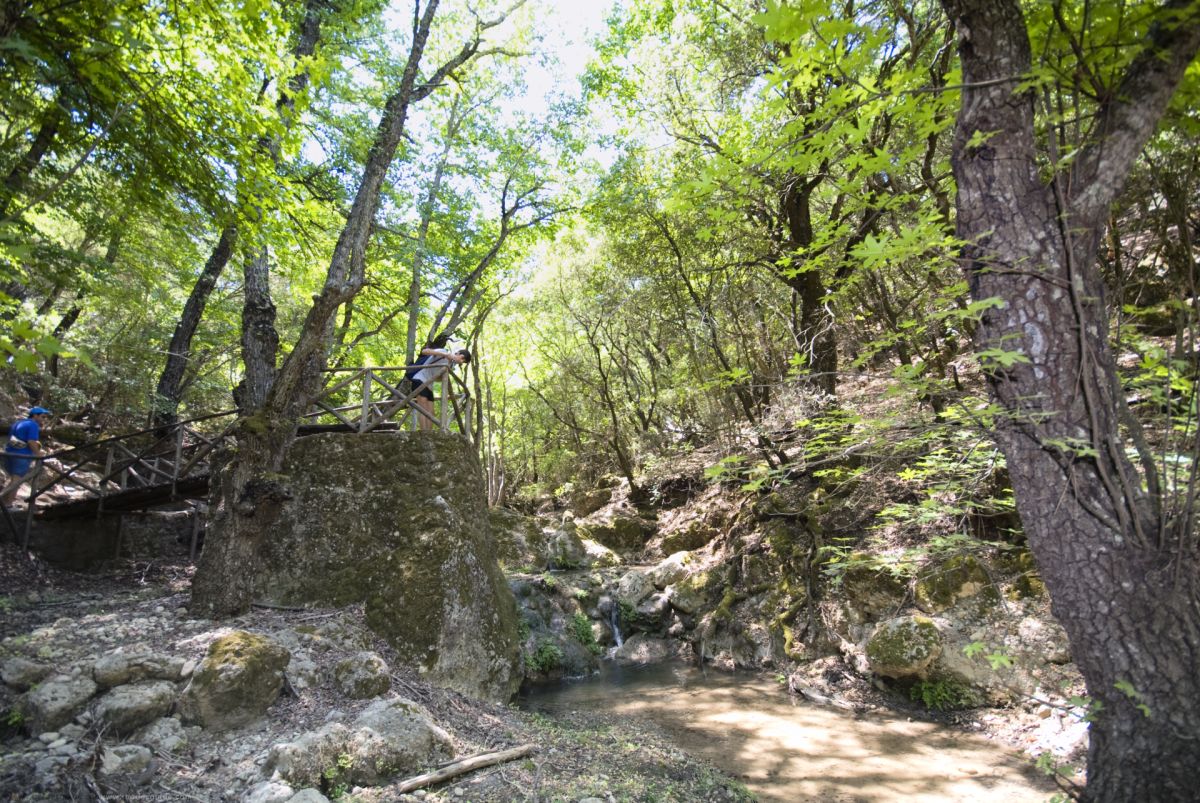The season ended on a positive note for the Butterfly Valley while the financial results were also very satisfactory.
Butterfly Valley has been a natural refuge and one of the most famous attractions on the island for decades. This terrestrial habitat offers breathtaking scenery, dense vegetation, stunning wooden bridges, paved paths, small lakes, endless waterfalls, serene atmosphere and a magical experience for all visitors. It is a unique place as there is a forest full of Liquidambar Orientalis or Beggar's Tree trees. Since this type of tree is found in only a few places in Europe, it makes this park one of the only habitats in Europe where these trees thrive. In addition, it is home to the magnificent butterfly species called Panaxia Quadripunctaria.
This year, with the unexpectedly positive development of tourist traffic on the island of Rhodes, the Butterfly Valley has become one of the most popular attractions for our foreign visitors.
DERMAE's (Municipal Enterprises of Rhodes) designated special advisor for the Butterfly Valley, Mr. Antonis Arfaras, expressed the satisfaction of the Board and by extension the Municipal Authority, saying that the results were more than satisfactory:
"At a meeting of the DERMAE held recently, all issues concerning the operation of the Valley were discussed. We are very pleased with this season. Everyone - the DERMAE management, city departments, staff, professionals who operate there, etc. contributed to these results. This year, Butterfly Valley far exceeded the attendance numbers compared to 2019. Every day we received about 2,000 -2,500 visitors (during peak season) who came in 40 tour buses! There were checkout points for visitors and vending machines for tickets. It is encouraging that we had no serious problems despite the huge volume of visitors we received, and the three car parks adequately catered for people.
What we are looking at from now on is the sustainability of the Valley, with a focus on protecting the environment and the rare species of butterfly there.
In this context, we will check the possibility of accessibility from another entrance, where parking spaces will be created, as the volume of visitors with tourist coaches and vehicles is very harmful to the environment (with exhaust fumes and noise) and creates a problem for the survival and reproduction of butterflies. There is also a study on this which we will examine.

Another issue that needs to be addressed is the water in the Valley where along its length, there are about ten small dams from the Italian era, 8 meters high, 25 meters long and 2.5 meters wide, which have been covered by the siltation. What we can do is to remove the soil to create ten water reservoirs that will greatly help the flow of water. The Italians who built them (during the Italian occupation) did so with the aim of acting like small lakes, enriching the underground horizon with water! And that's something we need to harness.
What we are concerned about is the survival and reproduction of the rare species of butterfly (Panaxia quadripunctaria). That is why we are planning the renewal and enrichment of the Liquidambar Orientalis or Beggar tree, which attracts butterflies. We need to find new plants to give it more vitality. We will include it in the study to help with butterfly breeding."
Asked about the revenue, Mr. Arfaras said that the season ended with a profit - something that applies to the professionals who operate health shops there and the restaurant: "The owners were very satisfied with the traffic and I believe that they are participating in the common effort to make everything work better and constantly improve the services offered. We, as a board, have started to plan a series of interventions within the Valley until the new tourist season of 2023 which will start, normally, from next April".
He also said that at some point there was a problem on the road going to Psinthos where a crack was detected which poses a risk of landslides. "We cannot leave any issues unresolved...", Mr. Arfaras concluded.
Source: dimokratiki.gr

 English
English
 Deutsch
Deutsch
 Ελληνικά
Ελληνικά